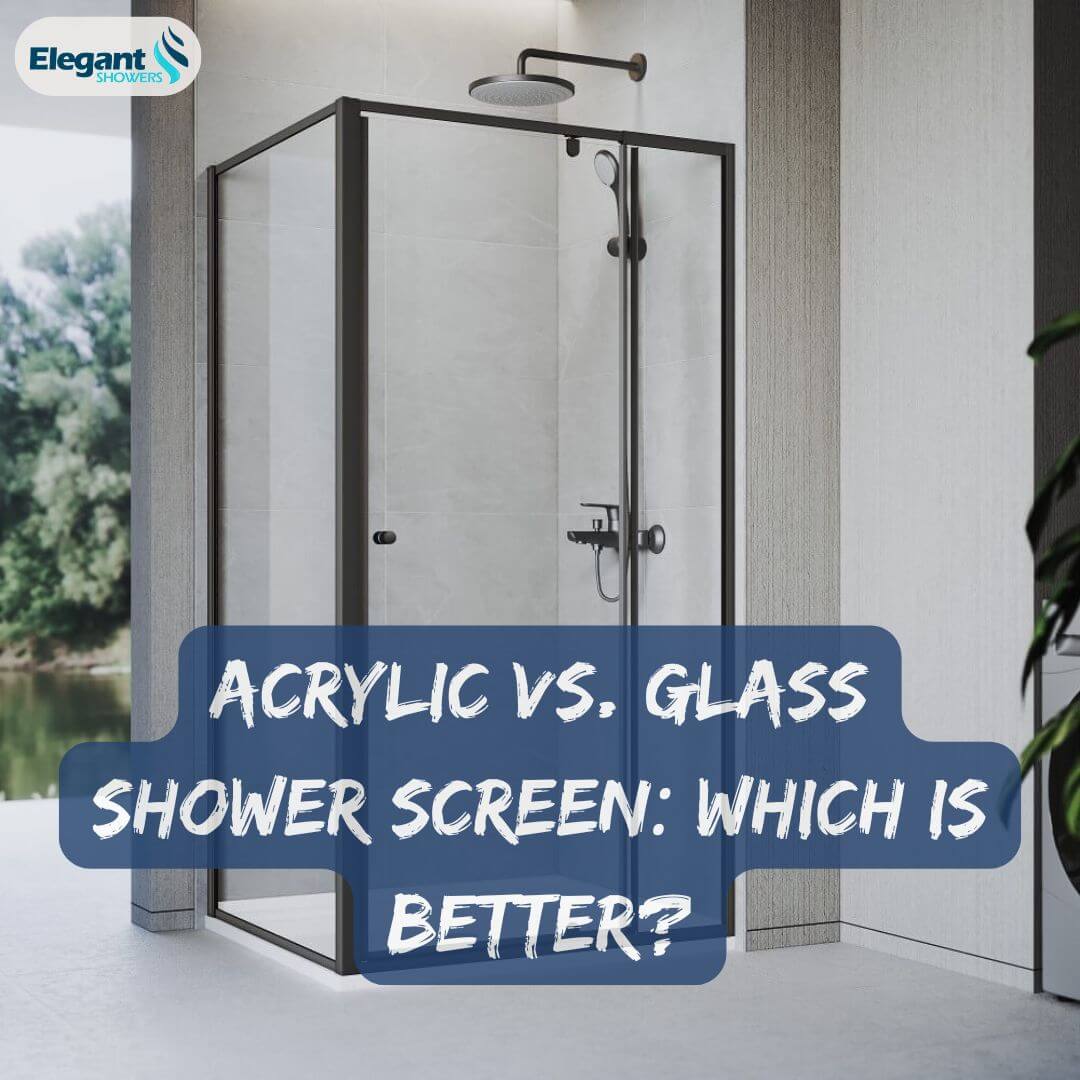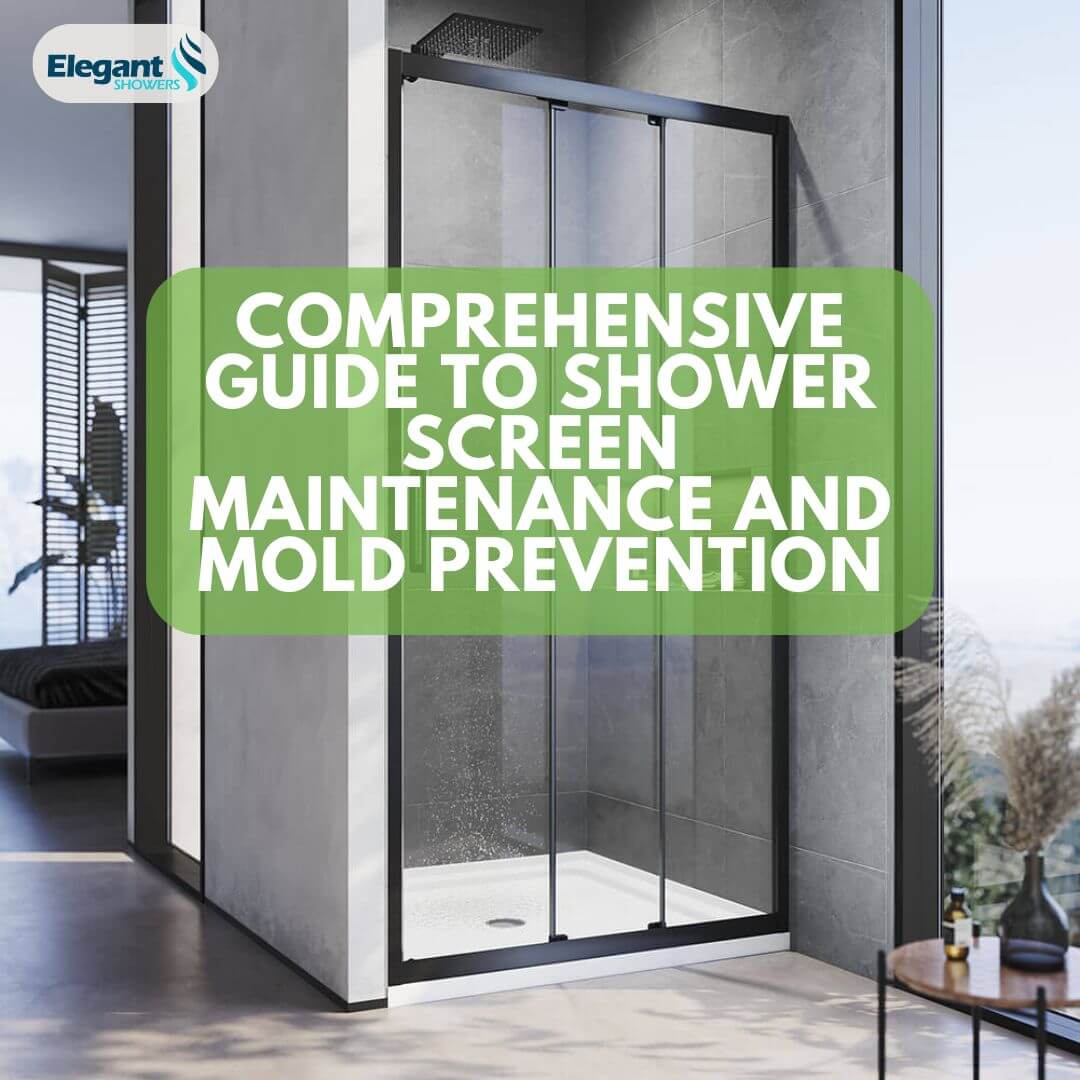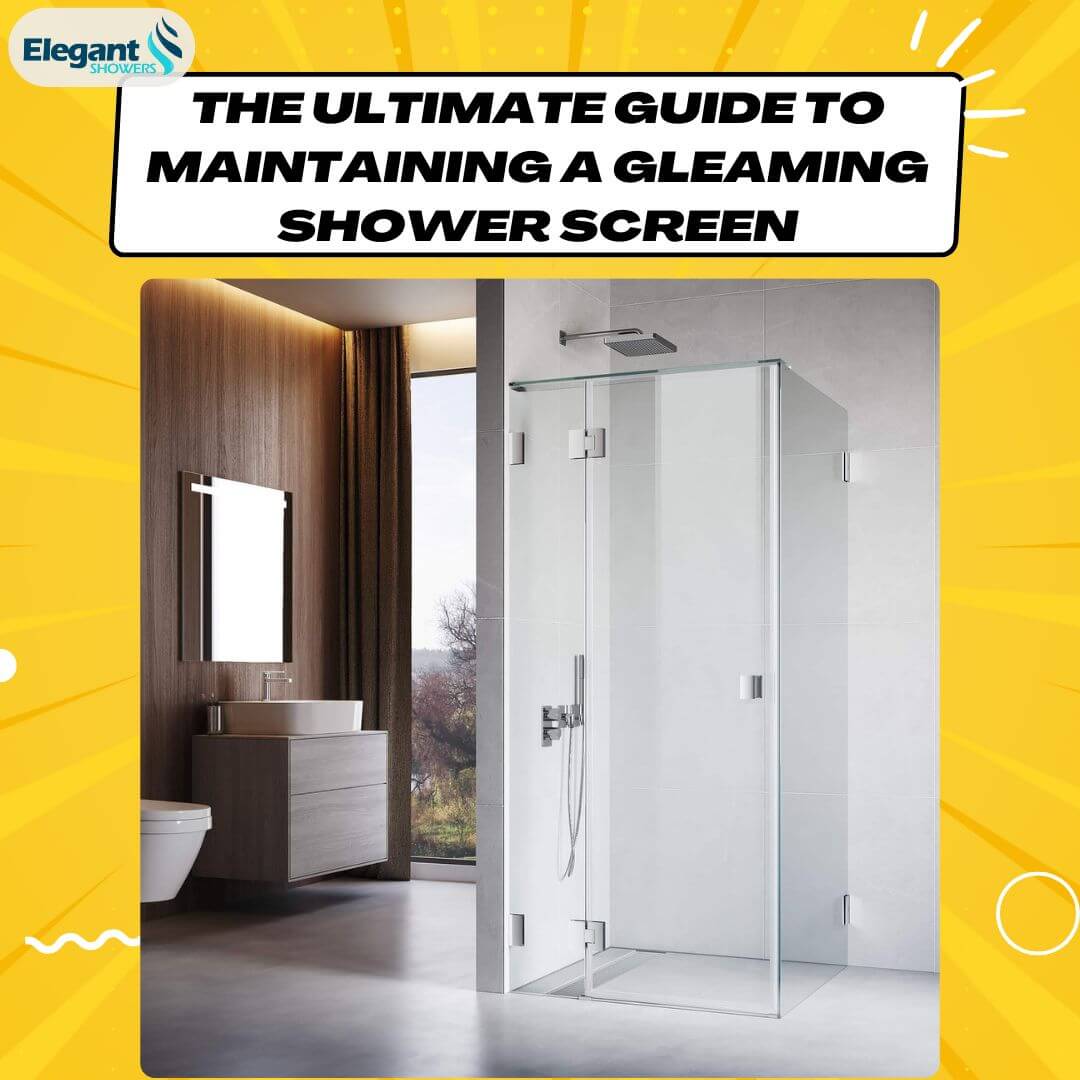When designing or renovating a bathroom, choosing the right shower screen is a crucial decision that impacts both functionality and aesthetics. Modern families often find themselves deciding between two popular options: acrylic and glass shower screens. Each material comes with its own set of characteristics that can significantly affect your daily bathroom experience, from maintenance requirements to visual appeal. This guide will help you understand the key differences between acrylic and glass shower screens, enabling you to make an informed decision that best suits your household's needs and preferences.
Why Do We Need Shower Screens?
Modern bathrooms benefit from a shower screen in many other ways than only water containment. Its main function is to build a strong barrier that keeps water splashes off your bathroom floor, lowering slip risks and shielding your bathroom fittings from water damage. Moreover, shower screens serve to keep the shower area warm, reducing cold drafts and so improving the bathing experience.
From a design standpoint, the visual attractiveness of your bathroom depends much on the shower screens. Their translucent quality and simple designs help small bathrooms to seem more roomy. Furthermore, shower screens prevent water collection and mold growth, therefore improving hygiene; their smooth surfaces make regular cleaning simpler than those of traditional shower curtains.
What's the Difference Between Acrylic and Glass Shower Screens?
Acrylic Shower Screens:
- Made from durable plastic polymer that's lightweight and flexible
- Naturally shatter-resistant and safer for families with young children
- Typically less expensive than glass alternatives
- Available in various colors and patterns
- Maintains good heat insulation properties
- More forgiving during installation due to its flexibility
- Weighs significantly less than glass options
Glass Shower Screens:
- Constructed from tempered safety glass (typically 8–12 mm thick)
- Offers superior scratch resistance and maintains clarity over time
- Creates a more premium, luxurious appearance
- Better resistant to chemicals and cleaning products
- Available in clear, frosted, or textured finishes
- More durable against daily wear and tear
- Maintains its original appearance longer without yellowing
- Creates a more spacious feel due to its perfect transparency
Acrylic vs. Glass Shower Screens
|
Feature |
Acrylic Shower Screens |
Glass Shower Screens |
|
Safety |
High impact resistance; shatterproof under most conditions, reducing risk of injury. |
Tempered glass is strong but can shatter; broken pieces are less sharp than standard glass. |
|
Durability |
Resistant to wear and capable of retaining clarity despite cleaning chemicals; may scratch over time. |
Harder surface that better resists scratches and can have added treatments for extra protection against stains. |
|
Maintenance & Cleaning |
Simple to clean with non-abrasive products; prone to scratches that can collect grime if not maintained. |
Often has a protective coating to repel water and limescale, allowing for easier maintenance and a clear appearance. |
|
Ease of Installation |
Lightweight and flexible, making it easy to transport and install, which can lead to lower installation costs. |
Heavier and requires careful handling; professional installation recommended due to weight and risk of breakage. |
|
Aesthetic Evaluation |
Possesses a glossy finish and can be crafted into various shapes; offers a modern look with practical design options. |
Classic and elegant appearance with unmatched transparency; can be customized with different finishes like clear, frosted, or etched designs. |
Is It Worth Investing in Glass Over Acrylic Shower Screen?
When analyzing shower screen cost-effectiveness, long-term value and initial outlay of funds must be properly balanced. Budget-conscious renovators find acrylic screens appealing as they usually cost 40–60% less than glass choices up front. Their smaller weight and simpler handling help to reduce the installation expenses as well.
In the long run, though, glass shower screens often show more economy. Although they cost more initially ($300–800 more on average), their better durability will help them last 15–20 years instead of 5–10 years as compared with acrylic. Glass displays also resist scratches, look nicer, and handle cleaning products effectively, therefore perhaps reducing replacement and maintenance costs. Glass screens frequently provide better value for homeowners who intend to remain in their house for a long period of time, even if they are more expensive initially.
Which Type of Shower Screen Should You Choose
Choose Acrylic If You:
- Are working with a limited renovation budget
- Have young children and safety is a top priority
- Want more color and pattern options
- Are doing a DIY installation
- Plan to remodel again within 5-10 years
- Live in a rental property
- Need a lightweight solution for wall-mounting concerns
Choose Glass If You:
- Want a long-term investment for your home
- Prefer a premium, luxurious appearance
- Use strong cleaning products regularly
- Want maximum transparency and light flow
- Are looking to increase property value
- Have help available for professional installation
- Want the most durable and scratch-resistant option
- Have pets that might scratch the surface
FAQ
How much more expensive is glass compared to acrylic?
Glass shower screens typically cost 40–60% more than acrylic, with prices ranging from $500–1,200 compared to acrylic's $200–600 range.
Which is easier to clean?
Glass is generally easier to clean and can handle stronger cleaning products. Acrylic requires gentler cleaners to prevent damage.
Will acrylic really turn yellow?
Yes, acrylic may yellow over time (usually 5+ years) due to UV exposure and cleaning products, while glass maintains its clarity indefinitely.






